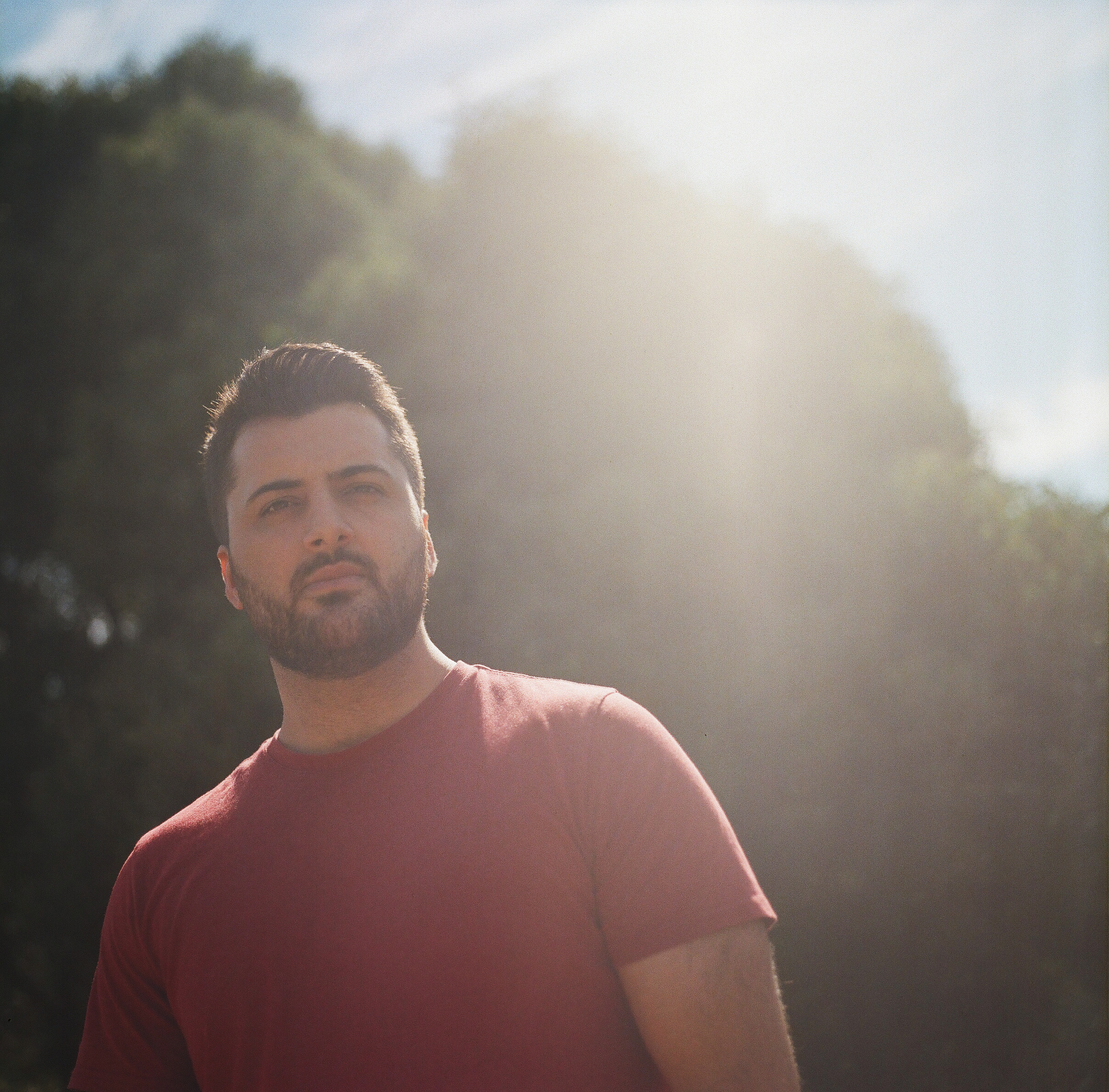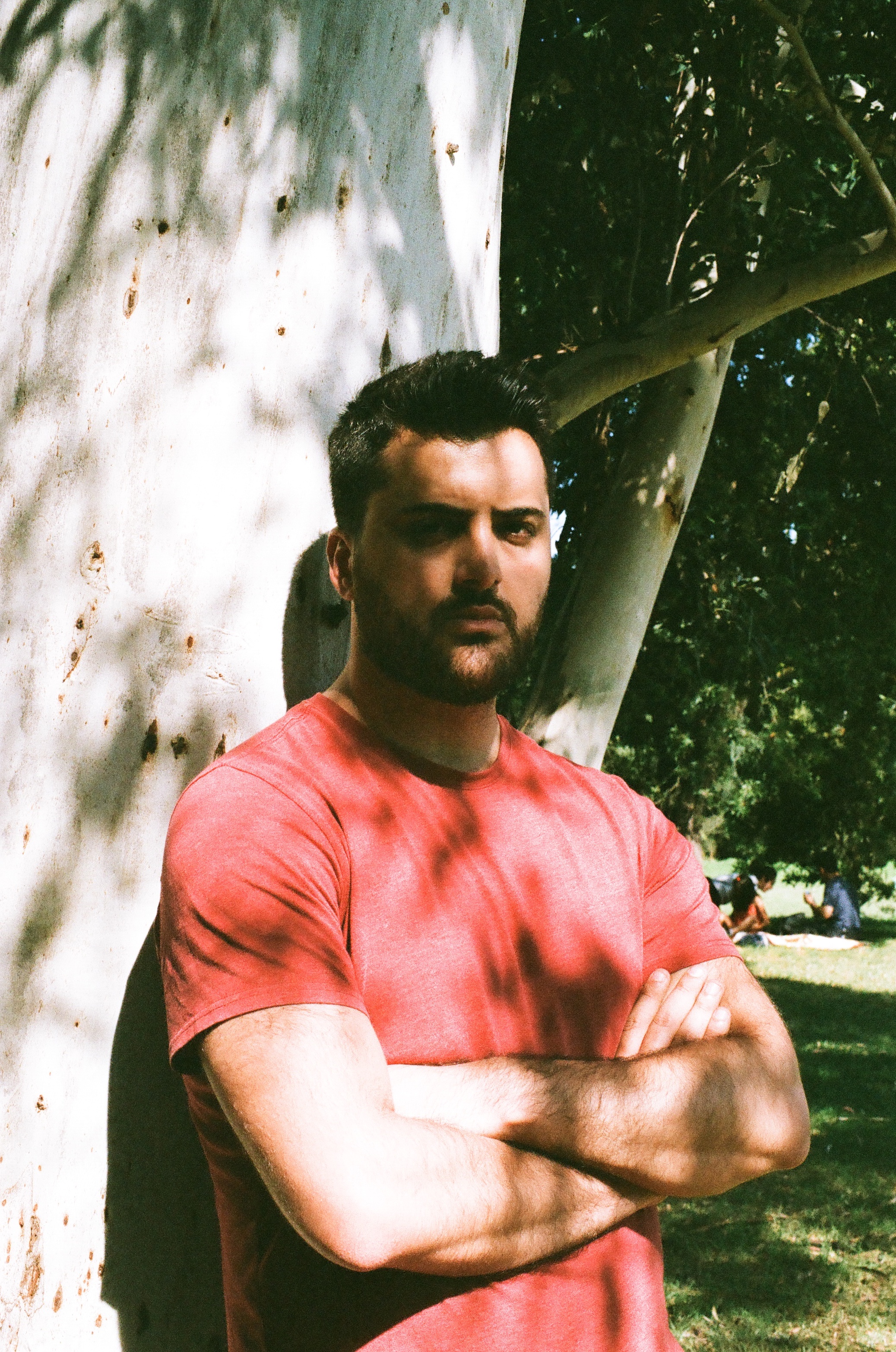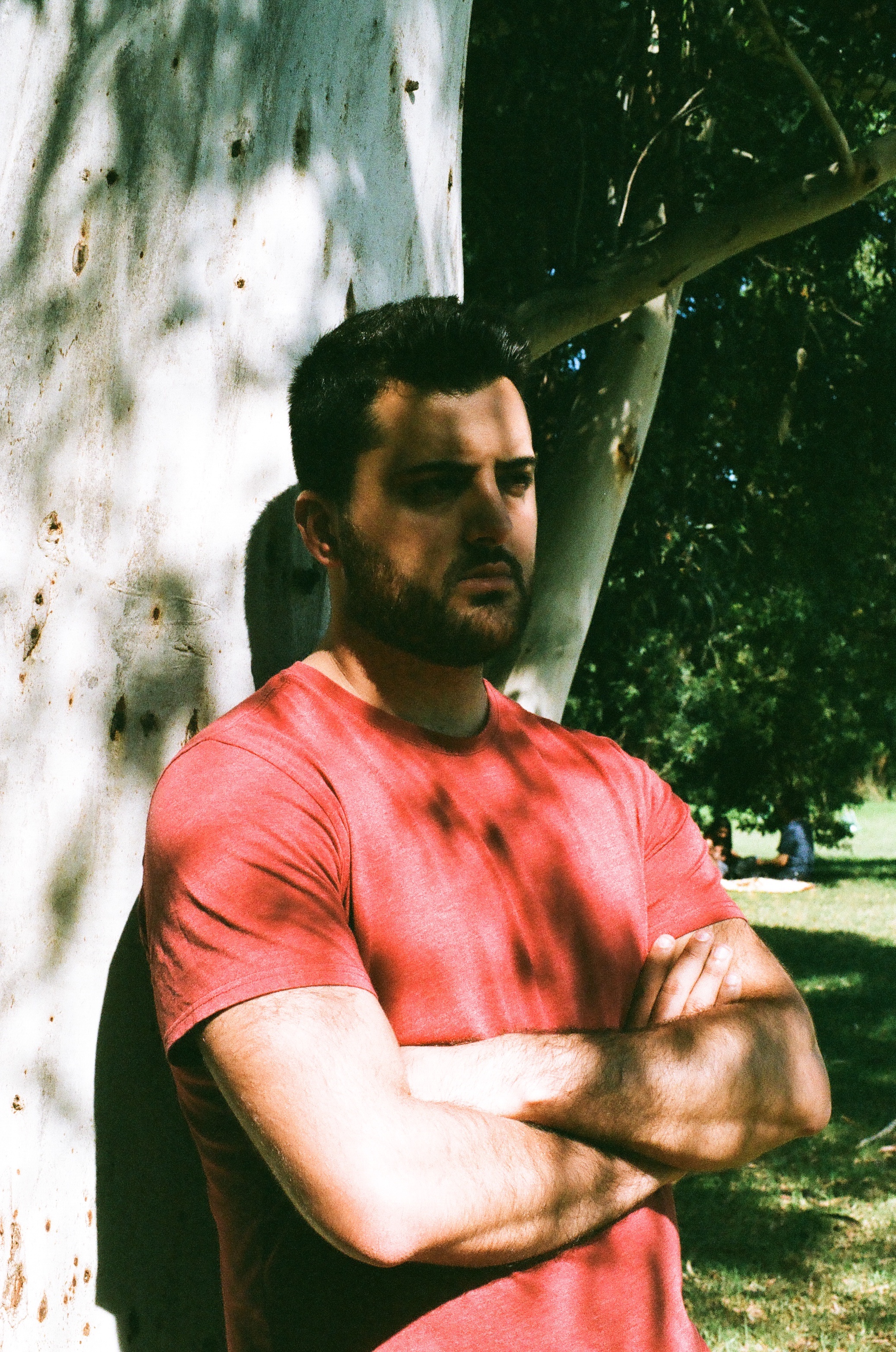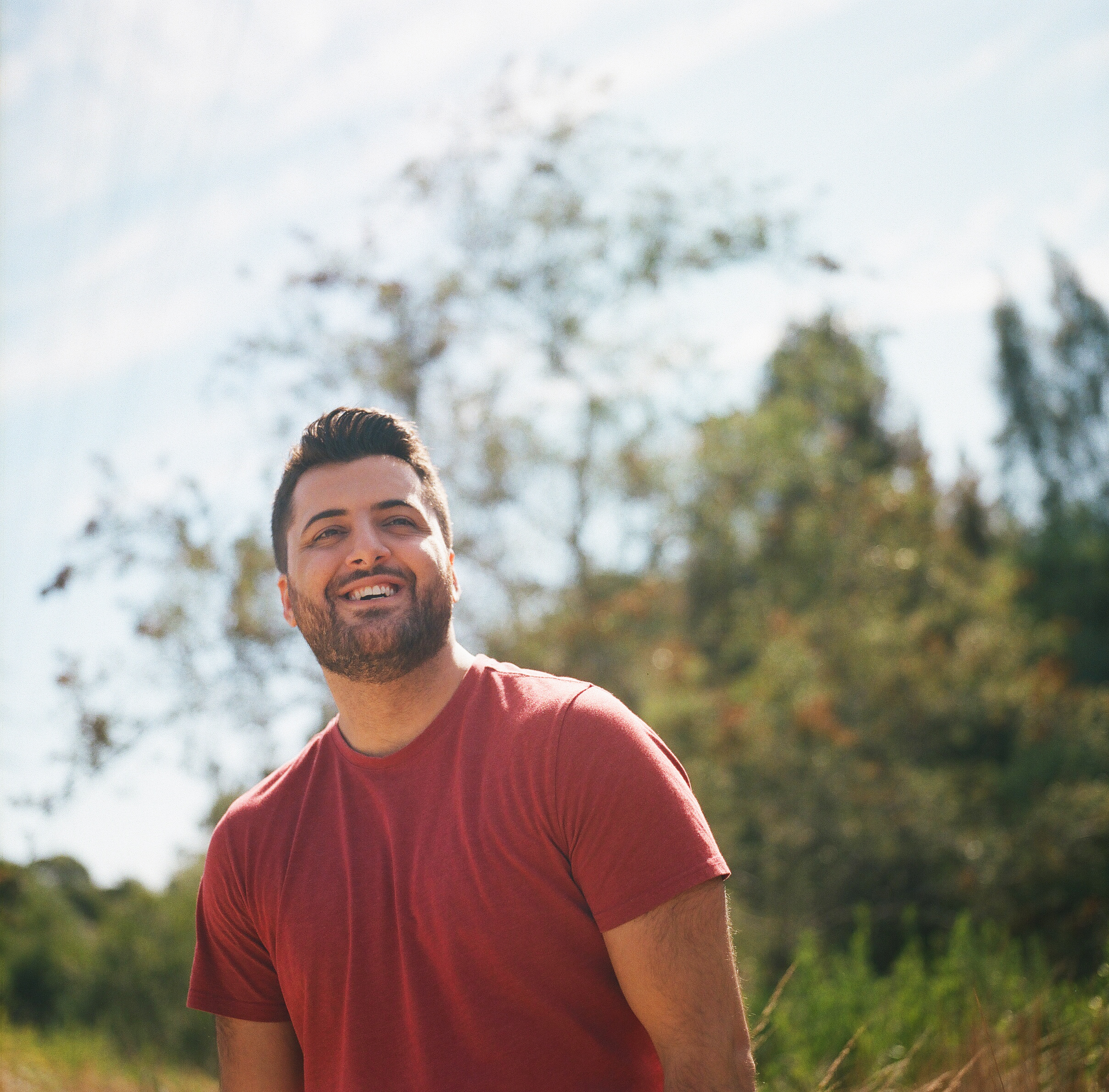Interview #53 — Omar Sakr
Interview by Robert Wood.
Omar Sakr is an Arab Australian poet from Western Sydney. His poetry has been published in English, Arabic, and Spanish, in numerous journals and anthologies.
His debut collection, These Wild Houses, was shortlisted for the Judith Wright Calanthe Award and the Kenneth Slessor Prize. He is the poetry editor of The Lifted Brow.
What did you read growing up?
I read fantasy novels, primarily, science fiction, comics. I was about as far away from what most consider 'literary' work as a body could be, as far from this world as I could go, and I loved it. I still do. Of course, these days I find the notion of a genre-literary divide to be almost unbearably silly, and so too the idea that a fantasy world is in any way removed from this one. Our lives, our world, bleeds into everything.
Are there any influences that have lingered? I am wondering about poems, texts, paintings, movies, songs you have thought about for a long time and that still matter to you.
Fantasy literature shaped me wholly. The old-fashioned epics had plenty of poems, which I adored, but I would argue also that fantasy as a mode is about transformation and so is poetry itself. It rearranges the possible. It infuses wonder, that principally human experience, into every inch of world. Danger, too, though that is less specifically human and more a staple of reality. If poetry is the crop I am harvesting now, it has to be said that fantasy prepared the earth.
How did you come to be involved with writing?
When I was a kid, my step-dad was a drug dealer and a terrific cook. He bet me ten dollars I couldn’t read a whole book, and the book in question was King Arthur and His Knights of the Round Table. If this seems a counter-intuitive choice for a poor Arab kid in Western Sydney, consider that Arthur was an adopted boy in a family who loved him anyway, who never really felt like he belonged but still found a way to prove himself in a terrifying, magical world. This is how I fell in love with reading, with language, and so, it’s also how I came to be a writer.
One can see that sense of another world emerging, when you consider that your poetry often crosses from the literary into the political, including in your book These Wild Houses. Can you give us an overview of that book and speak about the role of politics in poetry and the poetry of politics?
These Wild Houses is a distillation of my experiences growing up in Western Sydney, and also beyond that. It’s interesting to me how nobody seems to consider fantasy, that is, the act of imagination, part of that experience. This is to say that it’s not just 'true' or 'authentic'. Every memory is a dream: not to be trusted. What I find hilarious about being a writer of colour is the breathtaking degree to which we are taken literally, as if we are incapable of invention. A lot of the time we’re fucking with you. It’s embarrassing how often that’s missed, to be honest.
My poetry is political because my body is political, my god is political, my love, my sex, my tongue, everything. If I take a shit it’s political. The same is true of everybody, it’s just that some people are better able to ignore it, to cloak themselves in a laughable (white) universalism. Bless them and the tininess they mistake for world.
As part of this, how does personal experience matter for your own creative practice? What does understanding who you are and where you come from influence your writing?
Is there such a thing as a non-personal experience? I write from what I know, and what I know encompasses what I have dreamed, what has been inherited by blood.
I don’t claim to understand who I am or where I come from. If I did, I probably wouldn’t need to write anything. My poems exist as artefacts of certainty. Stepping stones I can use to leap across an endless lake of doubt, confusion, chaos. It doesn’t matter if one stone contradicts another. It need only be certain in its contradiction, it need only be weighty enough to carry my body.
Pulling back a little to think about writing in Australia, what is the importance of new voices in poetry here?
I think it’s hugely important that we see a dramatic increase in voices that deviate from the norm. ‘New’ is often taken to mean ‘young’ but that’s not strictly necessary in my view. I want more international voices, artists who are established in their respective countries, or else coming to the fore. There is so much ignorance here as to writing outside the Anglophone world, an ignorance I share, an ignorance I am dedicated to eradicating. Our education when it comes to art falls woefully short, and our funding models are too reliant on conservative governments. I don’t mean to say that public funding is itself bad, but the kind we have often comes with restrictions in place demanding either arbitrary outcomes or a focus on the ‘local’. Conservative governments almost by default operate on a lack of vision, a ‘more of the same’ mentality, and as that vision in absentia has been the norm in this country for decades, it has infected our art with a humdrum middle class sensibility that seeks only to reproduce itself.
What comes with vision, with actually seeing, with defiantly recognising, imagining, and celebrating difference? Danger. It is anathema to politicians—and to publishers, I might add—both of whom keep their eyes glued to a financial bottom line, to comfort. Yet this dangerous clarity is crucial to great art. One of the reasons I look for voices outside the norm, voices like and unlike mine, is because we grow up in a world of difference, are familiar already with resisting homogeneity, have stories to tell and an urgent need to tell them. What is often lacking at the entry level, due mostly to class disparities but also to entrenched prejudice, is access to the tools, the education or mentorship, necessary to take those voices to the next level. It’s starting to happen slowly, thanks to a number of factors including community organisations and key individuals using their influence to open doors for others coming up. There’s still so much more that can be done, however.
How does that matter for poetry here in Australia?
I find a lot of Australian poetry boring, frankly. A great deal of it is written with a wry self-effacing attitude, a shrugged shoulder and roll of the eyes. When I come across that I want to hurl it across the room. If you’re not convinced what you’re doing matters, why the fuck are you wasting my time with it? I think that ironic sensibility is poisoned by an awareness of the system, the sameness in which they’re operating, coupled with a glaring unwillingness to change it. New voices aren’t just important for the bodies they emerge from, the communities and countries they can represent or re-imagine, they’re important for the vitality of our art itself, which for too long has been a shallow, stagnant pool. This is why every artist, not just those on the margins, should be working to break it open, to let the ocean flood in.
You exist in a writing community that is beyond these shores too, including recent trips to Mexico and Sante Fe for festivals and residencies. How has this influenced your work?
I am the child of migrants, the product of two other nations: from the day I opened my eyes, I looked beyond these shores. The lack of mainstream Arab stories as I grew up, of non-Anglo stories period, was so profound that I had to find refuge somewhere: in my imagination, yes, but also in American stories, particularly African-American culture. The movies and books, comics and music, exported here were the closest I could find (while still being a world away) to my experiences growing up in Western Sydney; the violence, the drugs, the racism, toxic masculinity, search for belonging, etc. I’m thinking, as well, of the action heroes of my adolescence: Jean Claude Van Damme, Arnold Schwarzenegger, Jackie Chan, Jet Li, immigrants in the Western imagination beset by violence. What I’m saying is I’ve had to cobble together an international hall of mirrors from the start, with all the distortion that implies, and so of course this has influenced my work.
A formative experience for me was attending the Bali Emerging Writers Festival a few years ago. It was my first major opportunity, courtesy of the EWF program in Melbourne, as directed then by Sam Twyford-Moore. I came across a staggering range of voices there, a beautiful array of people, of histories, languages, and more than that, a large and hungry audience. Last year, attending the poetry festival in Mexico City, courtesy of its wonderful director Alí Calderón, I performed my work on stage beside poets from Greece, Denmark, Lithuania, Argentina, Palestine, Morocco, and not only were those poems read in their original languages, they were also read by Spanish translators. I have been blessed to read my work in a number of countries now, and each time it has only reinforced my view of the necessity for a literature that is global in scope and complexity
Do you look for these qualities in a poem as a reader? What do you like?
I don’t like to go into a poem with a preconceived notion of what I want. That would surely invite disappointment. I tend to gravitate toward intensity, toward immediacy—whatever you’re doing, convince me that it’s real and that it matters. I don’t really ask for much more than that, which is probably for the best, since the majority of work I see falls short of even this relatively basic requirement.
What makes a good poem for you as a writer? How do you know you have written one?
Ruby Hamad asked me this on Twitter recently. Here’s what I said: I think a good poem uses interesting or heightened language to elevate one or a series of charged moments beyond themselves, which ultimately either surprises me into a new thought or moves me deeper into a feeling. I never really know if I’ve succeeded—see above, re: the seething sea of uncertainty that is my mind—but I stop working on it when I can read it aloud without pausing, when the music never falters, and lingers afterward.
Reading out loud makes you the first audience for your work in a literal way, as performer and receiver. In that way, who do you write for?
Myself. Always myself, first. I’m a proud queer Muslim person of colour, and so by extension, I write for people who exist within the intersection of those communities, the ethnic and LGBTQIA. In particular I aim to create a literature that young people, young queer Muslims, can use to survive. After that? Anyone with an open heart.
This fits in with your work as the poetry editor of The Lifted Brow. Can you speak to us about your editorial mandate, preference and approach?
Well, this will come as no surprise given what I’ve said so far: I publish poets of colour, frequently queer poets, Indigenous and international poets. I’m in my second year as poetry editor and I have yet to publish an Anglo poet. I’m not ruling it out, but the fact is we publish three poets an issue, and we’re a quarterly magazine. So, the scope I have is not large but my reading has been, which is to say I have a long list of poets I admire who I am actively seeking out. I’m trying to demonstrate in practice exactly what I have been preaching in this interview, the value in voices and aesthetics that lie outside the norm. Every poet I publish deserves to be published more because they’re brilliant. I don’t get paid for this work, so to put it bluntly, I simply select art I want to see more of, from poets I love. If I had a bigger budget, I could be more expansive, open Submittable more and be less directly curatorial, but I’m doing the best with what I have.
How does editing help your own writing and how does it help build community?
Editing is really just a more proactive form of reading. It ensures I’m engaged and involved in the work, which undoubtedly hones my own skills. I’m not sure if it builds community but that is certainly my aim, to put poets from different parts of the world and different cultures side by side in the journal, to have them converse and find both points of commonality and divergence. I hope doing this will encourage them and their readers to buy their respective books and in this way foster an international exchange of ideas, of histories, of love.
And, what are you working on at the moment and how does it fit in with your work to date?
I have just finished my second collection of poetry, The Lost Arabs, a book that looks beyond the suburbs I grew up in, and at the diaspora which shaped me, and others like me. It’s a mix of the personal and the public, wherein I chart my family’s history and the oppressive forces which continue to savage the Arab and Muslim world. I’m also working on a novel, a fabulist queer story of young brown boys growing up in Western Sydney.
Do you have any advice for emerging writers?
Emerging? Why on earth would you want to do that? Run away! Run back into the wordless dark you poor miserable bastards. Failing that, take a crash course in taxation and learn what you can and can’t claim straight away; learn how to code, or some other actually useful skill that can earn you money because this sure as hell won’t; fuck around as joyously as you can while you are still able to because success in this industry will shrivel you into an avatar of loneliness locked in a room somewhere.
Who are you inspired by?
My insane family. The Earth itself, still spinning majestically despite all our bullshit.
What are you currently listening to?
Two cats and a dog running around a small apartment. They’re doing it without barking or meowing, so it’s pretty eerie to be honest, just the click-clacking of their nails on the wooden floor and the slow steady whine of wind outside.
What are you currently reading?
I’m reading Temporary People by Deepak Unnikrishnan, Frankenstein in Baghdad by Ahmed Saadawi, and Using Life by Ahmed Naji. I just finished reading Michael Mohammed Ahmad’s The Lebs, and I’m also traveling with Patricia Smith’s Shoulda Been Jimi Savannah.
How do you practice self-care?
By looking after those I love to the best of my ability. I’m growing wary of the idea of ‘self-care’, increasingly it feels like incentivizing selfishness for the already selfish. There are definitely people in this life who give too much of themselves, almost recklessly, in a desire not just to give love but to be worthy of love. It’s a kind of beautiful insecurity, in that the outcome is such generosity, but it stems from a disconnect in culture and a society that has historically neglected so many. It’s so easy to internalize absence of any kind as a deficiency of the self, something somehow deserved.
Let me be clear here: the people I’m talking about are typically black women, women of colour, and queers, and this selfless love typically is unreturned. For them, for the underprivileged and actively oppressed, I see the idea of self-care as a necessary corrective, but they are the exception to an otherwise greedy rule and I think most people should shut the fuck up about it. What if we cared best for ourselves by looking after others, and trusting that they will care for us in turn when we need it? The popularity of self-care can also be seen as an indication of the degree to which we’ve lost trust in each other, lost faith in the social compact. I think those of us in positions of privilege should be working to restore that.
What does being Asian-Australian mean to you?
I’m still relatively new to the term West Asian, and I only wish I had come across it earlier in life. Something I always struggled with growing up was the idea of halves, being half Lebanese and half Turkish. It’s one of the reasons I go by Arab, to orient toward a whole identity to which I belong. And yet, both Turkey and Lebanon are part of West Asia, so here is an ethnographic term that encompasses the entirety of my heritage and which doesn’t have the geopolitical baggage of 'Middle Eastern'. Much as I take pride in reclaiming ‘Arab’, a word slung at me with disgust for most of my life, it’s nice to have an alternative I don’t have to fight for every single day. It also connects me to billions more people on the planet. I think that’s beautiful.
Find out More
Interview by Robert Wood
Photographs by Leah Jing









